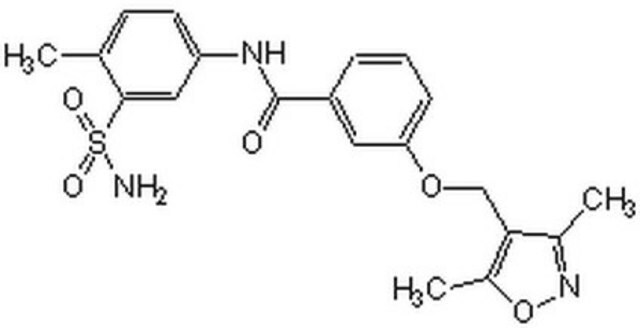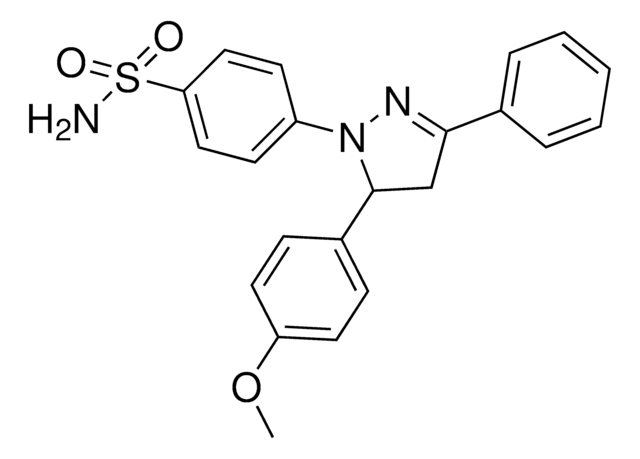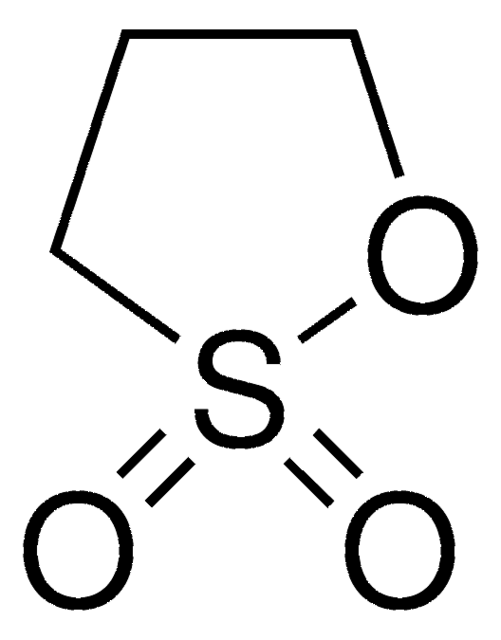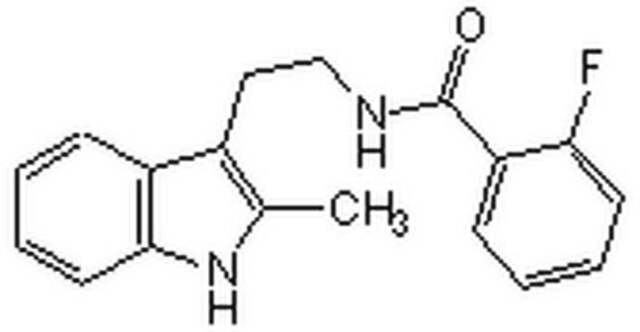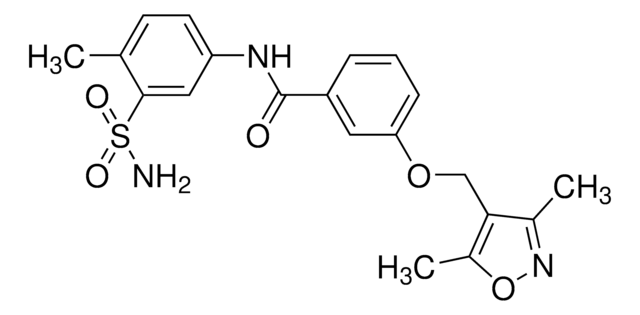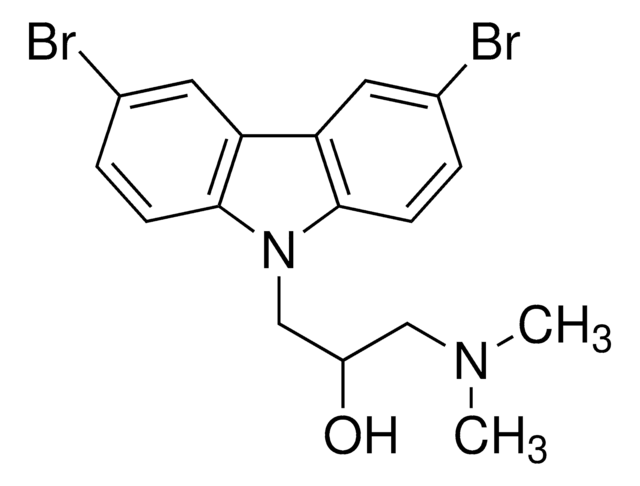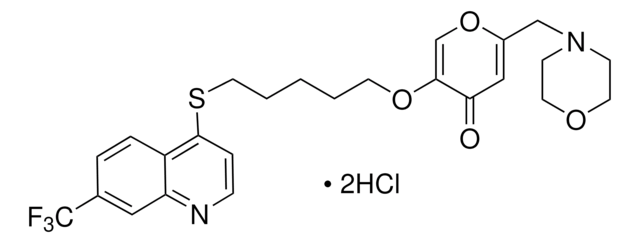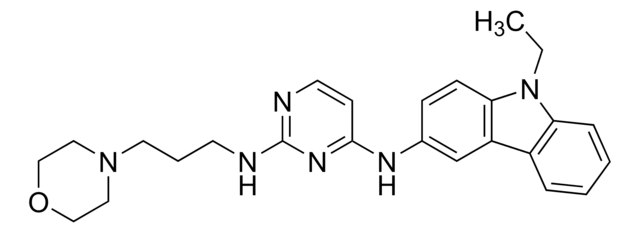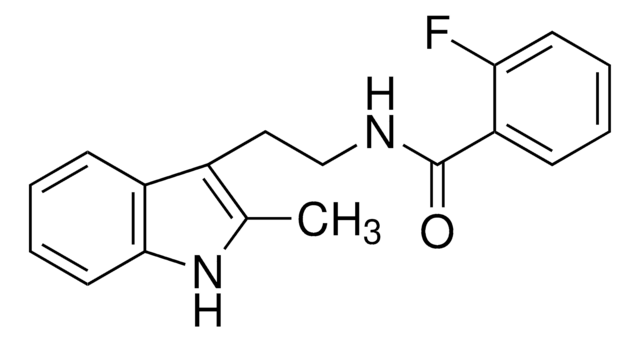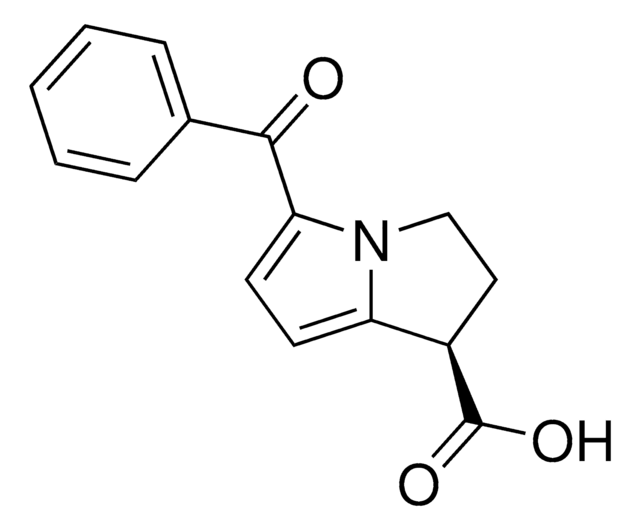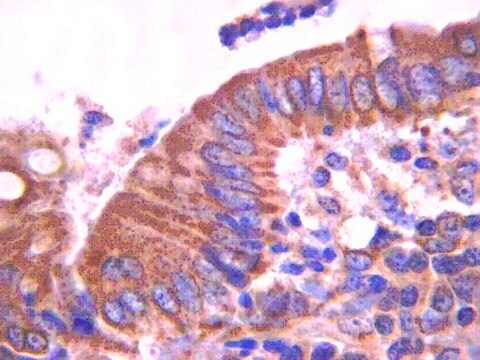SML0407
ML 141
≥98% (HPLC)
Synonym(s):
4-[4,5-Dihydro-5-(4-methoxyphenyl)-3-phenyl-1H-pyrazol-1-yl]-benzenesulfonamide
About This Item
Recommended Products
Quality Level
Assay
≥98% (HPLC)
form
powder
color
white to beige
solubility
DMSO: 5 mg/mL (warmed, clear solution)
storage temp.
2-8°C
SMILES string
NS(C1=CC=C(C=C1)N2N=C(C3=CC=CC=C3)CC2C4=CC=C(OC)C=C4)(=O)=O
InChI
1S/C22H21N3O3S/c1-28-19-11-7-17(8-12-19)22-15-21(16-5-3-2-4-6-16)24-25(22)18-9-13-20(14-10-18)29(23,26)27/h2-14,22H,15H2,1H3,(H2,23,26,27)
InChI key
QBNZBMVRFYREHK-UHFFFAOYSA-N
Related Categories
Application
- to inhibit CDC42 GTPase in human immortalized gingival epithelial (HIGE) cells
- as inhibitors of Rho kinase to study the role of small Rho GTPases on localization of peripheral nuclei
- as actin regulator inhibitor, to determine which actin regulators and nucleators are involved in the assembly of F-actin cages around damaged mitochondria
- as a selective, non-competitive inhibitor of Cdc42 to treat CCD-1070Sk cells
Biochem/physiol Actions
Features and Benefits
Storage Class Code
11 - Combustible Solids
WGK
WGK 3
Flash Point(F)
Not applicable
Flash Point(C)
Not applicable
Choose from one of the most recent versions:
Certificates of Analysis (COA)
Don't see the Right Version?
If you require a particular version, you can look up a specific certificate by the Lot or Batch number.
Already Own This Product?
Find documentation for the products that you have recently purchased in the Document Library.
Customers Also Viewed
Articles
Cyclic nucleotides, including cyclic AMP (cAMP), cyclic GMP (cGMP) and cyclic ADP-ribose, have been extensively studied as second messengers of intracellular events initiated by activation of GPCRs. cAMP modifies cell function in all eukaryotic cells, principally through the activation of cAMP-dependent protein kinase (PKA), but also through cAMP-gated ion channels and guanine nucleotide exchange factors directly activated by cAMP.
Our team of scientists has experience in all areas of research including Life Science, Material Science, Chemical Synthesis, Chromatography, Analytical and many others.
Contact Technical Service